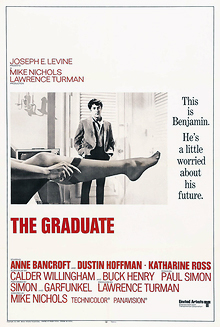A blog formerly known as Bookishness / By Charles Matthews
"Dazzled by so many and such marvelous inventions, the people of Macondo ... became indignant over the living images that the prosperous merchant Bruno Crespi projected in the theater with the lion-head ticket windows, for a character who had died and was buried in one film and for whose misfortune tears had been shed would reappear alive and transformed into an Arab in the next one. The audience, who had paid two cents apiece to share the difficulties of the actors, would not tolerate that outlandish fraud and they broke up the seats. The mayor, at the urging of Bruno Crespi, explained in a proclamation that the cinema was a machine of illusions that did not merit the emotional outbursts of the audience. With that discouraging explanation many ... decided not to return to the movies, considering that they already had too many troubles of their own to weep over the acted-out misfortunes of imaginary beings."--Gabriel García Márquez, One Hundred Years of Solitude
Search This Blog
Sunday, February 21, 2016
The Graduate (Mike Nichols, 1967)
The Graduate and It Happened One Night (Frank Capra, 1934) are both fine examples of the "runaway bride" trope, but there the resemblance ends in irony. In the latter, Ellie (Claudette Colbert) balks at the altar and runs away, veil and train streaming, to the arms of Peter (Clark Gable), but we never see them together: The film ends with the sound of a toy trumpet and we see the "walls of Jericho" blanket falling. It's a gratifying "happy ending," in which order is brought out of chaos, which is the way a romantic comedy is traditionally supposed to end. But in The Graduate the situation is reversed: The wedding that is supposed to restore order ends in chaos, as Benjamin (Dustin Hoffman) arrives to carry off Elaine (Katharine Ross), interrupting the nuptial kiss after the wedding is over. And then we see them together on the bus, as Nichols holds the camera on their faces just a little longer than he might: The smiles on their faces begin to fade, and uncertainty takes hold. We aren't supposed to wonder about what happens to Ellie and Peter, but we can't help feeling the chill of reality fall over Elaine and Benjamin. Watching The Graduate today, I find it a troubling, even cynical treatment of some serious themes. Benjamin, for example, seems to be designed as a comic figure, with his little gulps and tics and his awkwardness when faced with the seductive Mrs. Robinson (Anne Bancroft). But a more sympathetic viewer might diagnose him as clinically depressed, desperately being borne along by the tide of events, just as he's borne along by the moving sidewalk at the airport in the film's beginning, and then trying to avoid the consequences of the freedom he has earned by graduating. He escapes from the adult world into his room, with its burbling fish tank that foreshadows his underwater escape when he's expected to "perform" in the scuba gear he's been presented by his parents. When he does commit himself to a course of action, deciding suddenly and almost arbitrarily that he will marry Elaine, he has clearly lost his mind. And is there a sadder figure in movies than Mrs. Robinson, who lives in alcoholic denial of the disaster her life has become? Bancroft's performance in the scene in which Benjamin tries to get her to open up about her life is simply stunning. The screenplay by Calder Willingham and Buck Henry is the only really funny part of the film, with its classically quotable lines: "Plastics." "Mrs. Robinson, you're trying to seduce me. ... Aren't you?" "I think you're the most attractive of all my parents' friends." It's Nichols's direction that turns our attention to the reality undermining the comedy. The Graduate is often seen as a kind of twin to Bonnie and Clyde (Arthur Penn, 1967): two films that announce an epochal shift in Hollywood, upending audience expectations by addressing themselves to a more sophisticated young audience. As a satire on upper-middle-class life in the mid-20th century that masquerades as a romantic comedy, The Graduate was enormously influential. I just can't make up my mind whether that influence was for the good.
